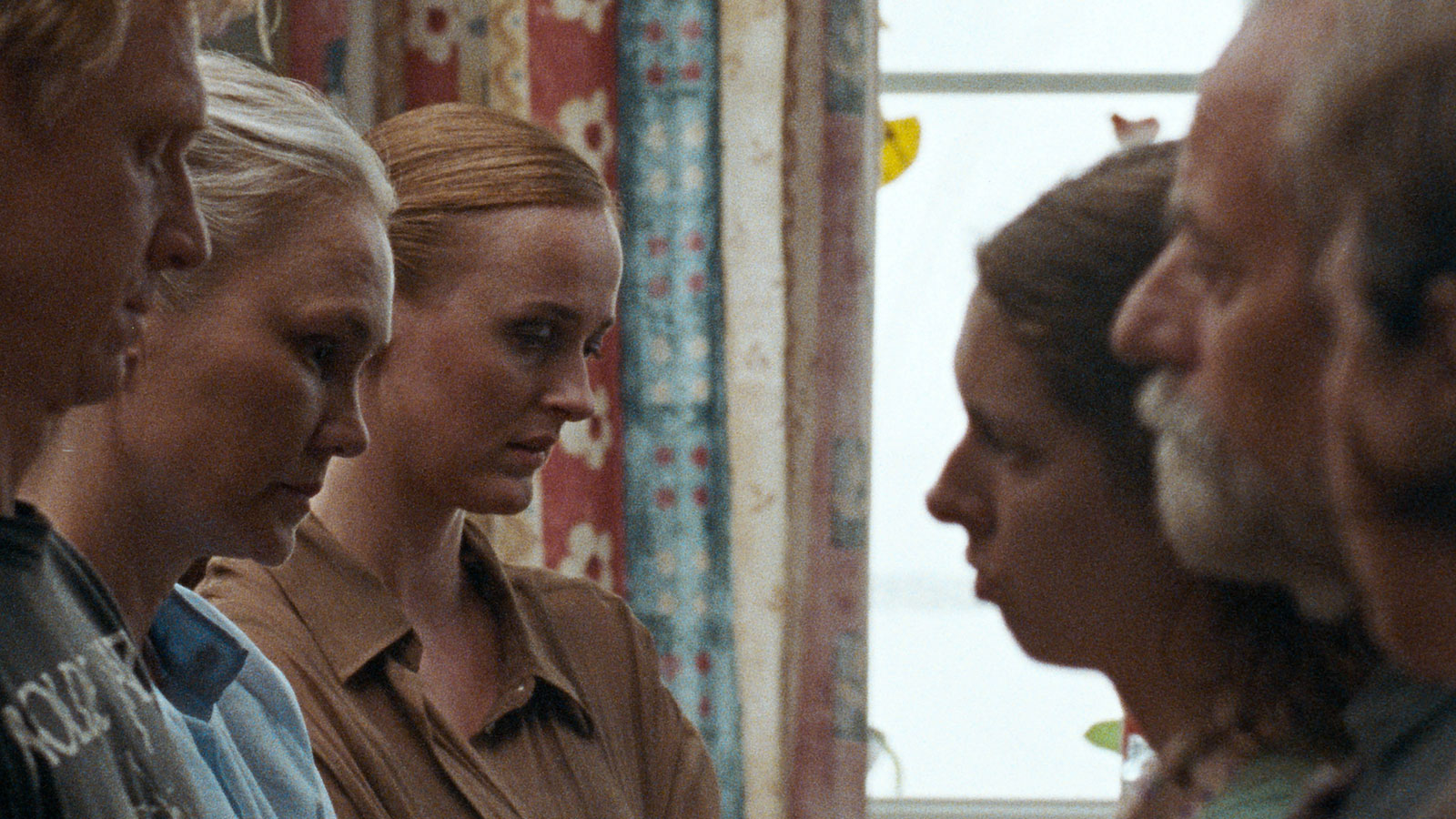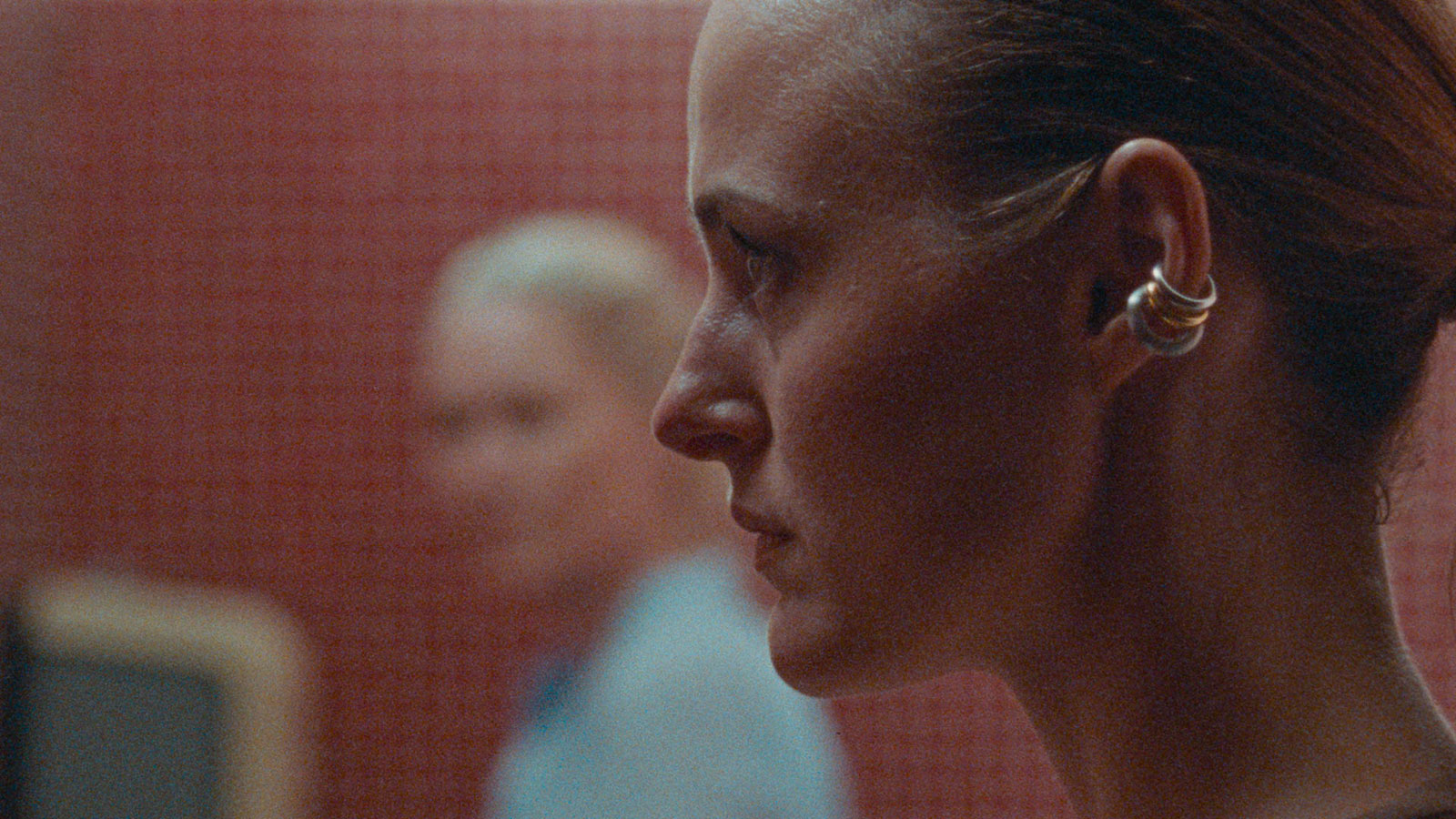Pushing the Limits: Halfdan Ullmann Tøndel on Armand

Critics Campus 2024 participant Dylan Rowen speaks to director Halfdan Ullmann Tøndel about the development of – and thinking behind – his tense single-location drama.
Halfdan Ullmann Tøndel’s Armand premiered in this year’s Un Certain Regard section at Cannes, where it won the Caméra d’Or, the festival’s award for best first feature. Claustrophobic, volatile and rich with stylistic diversions, the film is a suffocating social drama that follows Elizabeth (Renate Reinsve) as she is called into a tense parent–teacher meeting following accusations of misconduct between her son and another student. As the first Norwegian filmmaker to receive the prize, Tøndel – the grandson of Ingmar Bergman and Liv Ullmann – sat down with me to discuss this explosive melodrama, his cinematic influences, and how he managed to capture such a kinetic and electrifying performance from rising star Reinsve.
Armand is an incredible achievement. Where did the idea germinate?
I heard this story about two six-year-olds, where one boy had said something very grown-up-like to the other, and my imagination started spinning. I worked in a primary school for four years, but I didn’t take anything specific from that period. I did take a sort of summary of different incidents and how we as teachers and principals manage those situations. In Norway, we have a way of handling conflict where we remove ourselves from the responsibility as much as possible.
I would love to talk about Renate’s character in the film. Her performance is so intense.
We all know she is a fantastic actor, and I worked with her on a short film in 2016. I saw some raw, intense and powerful elements in her acting that she hasn’t been able to show yet. She’s great in The Worst Person in the World [Joachim Trier, 2021], but she is kind of mild in it, and I wanted to show her strong and fierce side in Armand. She’s so smart and analytical and so intuitive with everything she does. And the scene where Renate laughs for seven or eight minutes – to do that kind of thing, it just takes an incredible actor. I couldn’t ask many actors to do that. That was one of the few scenes we didn’t rehearse at all, as it was impossible to rehearse; it just had to happen in the moment.
I was wondering about the atmosphere on set. The film feels so claustrophobic. How did you manage to create this mood?
One of the rare things we did in this film is that we shot it chronologically, which usually costs a lot of extra money and logistically is impossible. But, in Armand, it made sense, so everyone grew into the school together. I like to do a lot of rehearsals and approach each actor individually. Some are very talkative, some not at all; some like rehearsals, some don’t. I try not to impose my style on their performances.
You have the incredible Ellen Dorrit Petersen playing Sarah, who has a complex history and relationship with Renate’s character, Elizabeth. What was it like directing her?
She was so brave. I was so impressed by the trust she gave me. I mean, it’s a really demanding role, as the character isn’t likeable at all. To find the vulnerabilities in her character, all the shame she carries, it’s done with nuance.

Armand
There’s also a dance number in Armand, which I love, where we get a peek inside Elizabeth’s mental state. How did you develop that?
I’ve always loved dancing in movies. And there was one goal I set for myself: I was going to be unafraid. Rather than trying to make the perfect film, I was more interested in showing different moods. The bipolarity of the tone in the film was quite challenging.
The scene wasn’t meant to be that long; when Renate and the choreographer, Sigyn Åsa Sætereng, got together and showed me the dance, it lasted for three minutes – but I loved it, and I just had to keep the whole thing.
It’s a fantastic interlude that reminds me of old Hollywood musicals and dance numbers.
Yes! I’m really obsessed with this Stanley Kubrick quote where he says that “a film is – or should be – more like music than like fiction. It should be a progression of moods and feelings.” Every time the editor [Robert Krantz] and I were stuck in some analytical or logical explanation of things, we just repeated to ourselves: “progression of moods and feelings”. Does this new scene give us a new feeling? And it’s the same feeling with the dance scene – people can try to interpret that distinct travel of feelings.
You mention Kubrick. What other films or directors have influenced you?
With Armand, I watched a lot of films done in one location – like Suspiria [Dario Argento, 1977], Rosemary’s Baby [Roman Polanski, 1968], Amour [2012] by [Michael] Haneke. Who’s Afraid of Virginia Woolf? [Mike Nichols, 1966] was a kind of chamber play I did not want to do – too much like theatre. Armand needed to be very cinematic, despite its one location. That was very clear for me.
I’m very influenced by Luis Buñuel, how he managed to make his satires very serious – and the intensity in The Celebration [1998] by Thomas Vinterberg, or Isabella Eklöf’s Holiday [2018]. Isabella really pushes the limits on how far she takes her scenes, which I think is incredibly brave and very inspiring.
What drew you to working with your cinematographer, Pål Ulvik Rokseth?
In our first meeting, we talked about how we wanted to make mise en scène great again. You know, the interplay between actors and the camera, being conscious about how that collaboration feels. A lot of films have unfortunately inherited [a] TV series aesthetic. We wanted to film … in quite a conscious way. We used a lot of close-ups and longer kinds of takes with different types of compositions in the same shot, which is what I love.
Do you remember what got you interested in filmmaking?
I repressed so much in my early twenties – the pressure to make movies, or go into some creative business. But then I randomly had some film classes at university, and then I just realised, “Oh, I fucking love this!” I applied to film school, and that love has just kept on growing.
I feel really at home making movies. It’s a way to express a lot of things that are uneasy to express otherwise. It’s a great privilege.